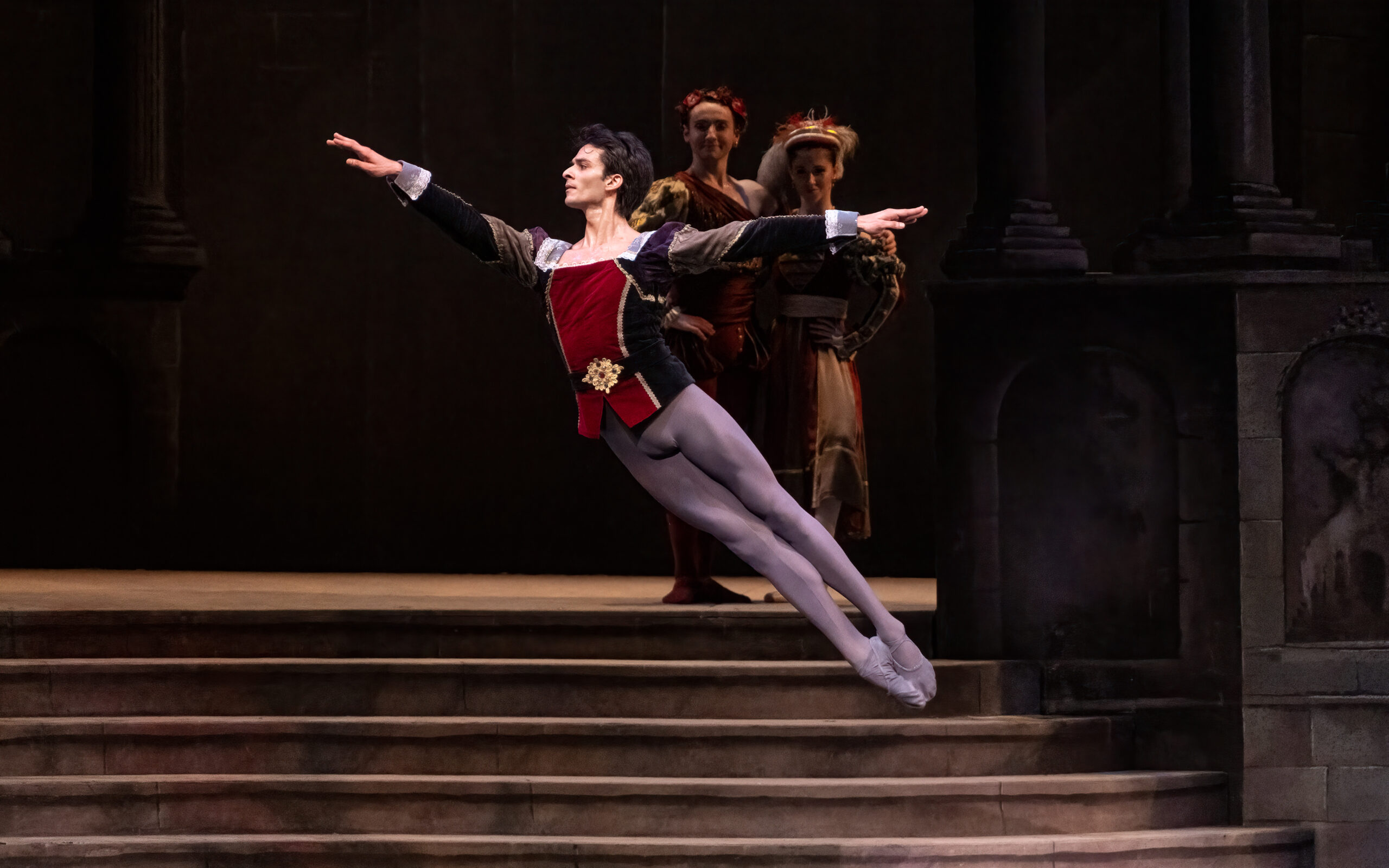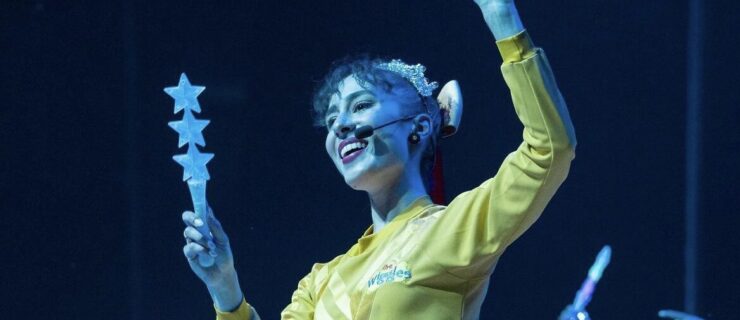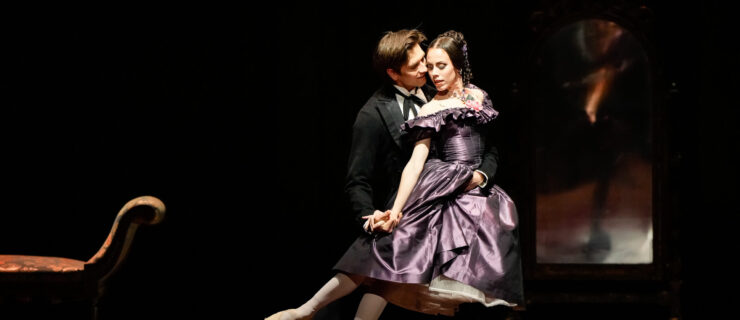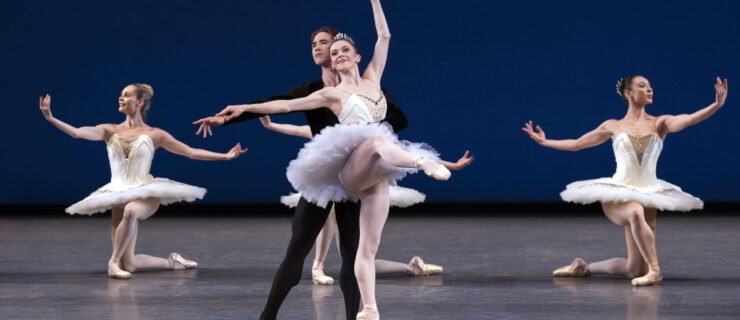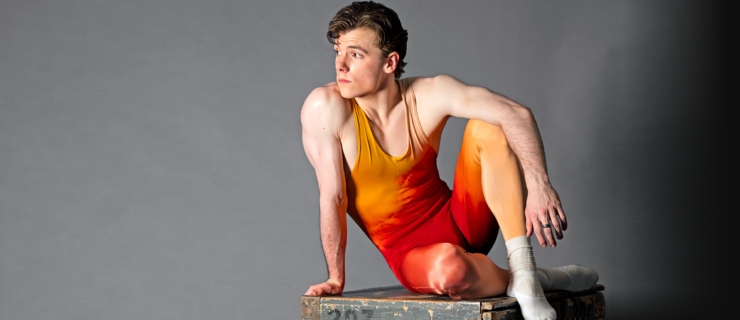For Dutch National Ballet Principal Constantine Allen, Success Lies in Hard, Honest Work
Dutch National Ballet principal Constantine Allen is a storyteller at heart. The American dancer, who grew up in Hawaii and began his career at Stuttgart Ballet, finds his own voice in roles like Armand, Siegfried, or Albrecht, but also stands out in neoclassical works by innovators like William Forsythe or David Dawson. And he never forgets the value of patience and honest work.
How did you get into ballet?
I saw a production of Cats and told my mom I wanted to start dancing. She said, “If you want me to enroll you in dance, you have to learn to do the splits.” Two weeks later, I showed her the splits and I started right then.
At 6′ 3″, you’re very tall. Do you find that hinders or helps you?
It’s a blessing and a curse. You don’t really have to explain so much the blessing part—“Oh, you’re so tall!” or “Your legs are so long!”—but at the same time, it’s that much harder to move around. But if you have patience, and you’re willing to break it down and simplify things and really work for it, there’s no reason you can’t dance as big and tall as you are.
How did participating in competitions help to shape you as a dancer?
For me, it took a while to really understand the reason why I competed. Over time, though, I felt lucky that I had a clear mind as to the purpose of what I was competing for—it wasn’t just to win gold and add that medal, it was to soak up as much as I could. It’s a tricky environment and I was fortunate with how I came out of it.
Who have been some favorite choreographers to work with?
I’ve really liked working on many of the classics—John Cranko, Kenneth MacMillan—his Song of the Earth comes to mind. I’m more of a traditionalist when it comes to what’s being commissioned. However, when it comes to new works, the hardest thing is finding a sense of space and time, and that being enough on its own. David Dawson and Douglas Lee are some choreographers that come to mind with whom I’ve really been able to do that. They’re making works that are representing a singular moment in time.
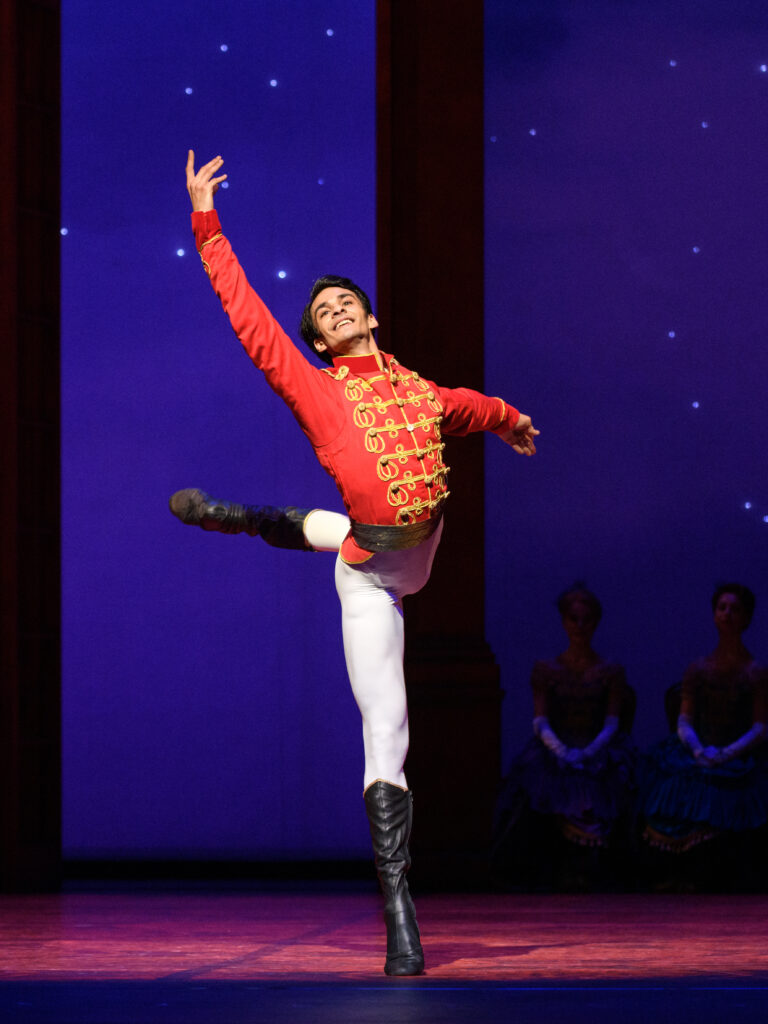
What do you enjoy more: performing or being in the studio?
If I had to choose, it would be the studio. I love the process—there’s nothing better than being an hour and 15 minutes into a two-hour rehearsal of Swan Lake with your coach and your partner. You are sweating bullets, talking about things, and trying to figure out the nuances of what you want to say. Or, like now, we’re currently working on Forsythe’s Blake Works I. It’s a big group of us trying to figure out canons and counting. The studio is where it’s at.
To whom or to what would you attribute your success?
I’ve had so many, but the strongest mentor I’ve had is Georgette Tsinguirides—she was Cranko’s choreologist. She worked at Stuttgart for 70 years. She taught me about more than just dance, she taught me about life. She has quotes that I still say to myself before I go onstage.
Have you had a worst nightmare onstage?
It was during the second round at the Varna International Ballet Competition. At the end of my manège, I went for a helicopter jump and I completely wiped out. They didn’t get it on video because they were already panning to my partner starting her fouettés, but you can hear the audience’s gasp.
Favorite ballet?
Definitely John Neumeier’s Lady of the Camellias. I wish that everyone could experience what it feels like to dance Marguerite or Armand. It feels like a movie, from the moment you run out onstage as Armand until the moment you close the book at the end of the ballet. It’s a mastery in storytelling.
What’s your favorite thing to cook?
I do a pretty good miso-glazed salmon with steamed veggies and rice—no Michelin-star recommendation or anything, though.
What qualities do you admire most in other dancers?
Honesty. Honest work is hard to come by.
What’s your pre-performance routine? Do you have any superstitions?
I put my left shoe on before my right, even though I’m a righty. All of a sudden, I was aware of it and it became a thing.
What advice would you have for students wanting to be professional dancers?
If you love it and you’ve come to the studio, work hard. It’s okay to have moments where you doubt that, where realizing how difficult the work is scares you. It still scares me sometimes—waking up every day, facing the barre. But if you’re there, then you’re already there. You might as well work.
